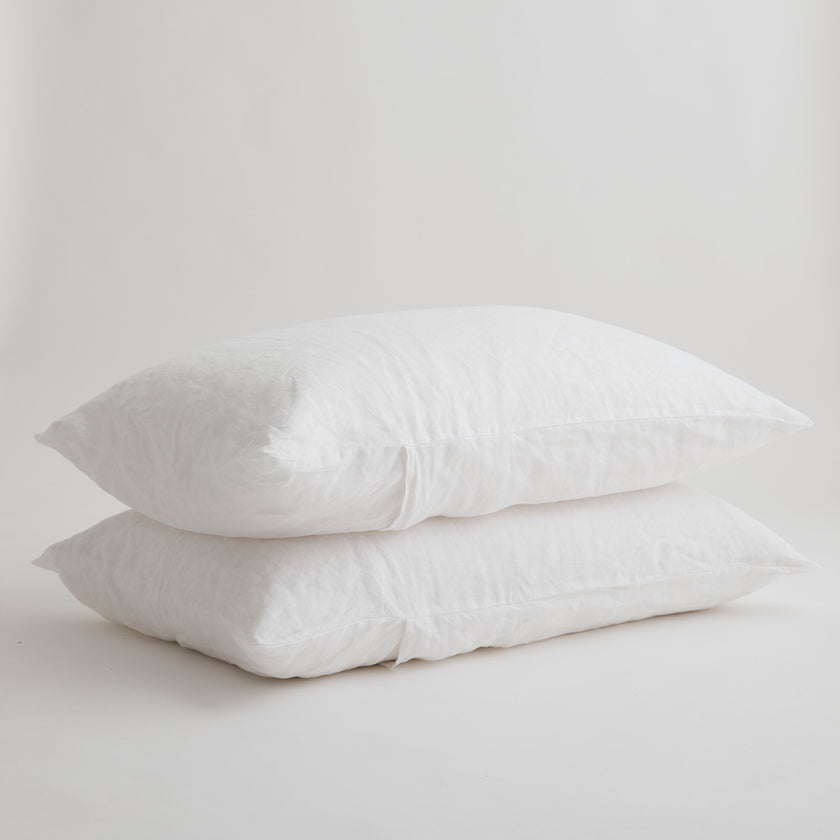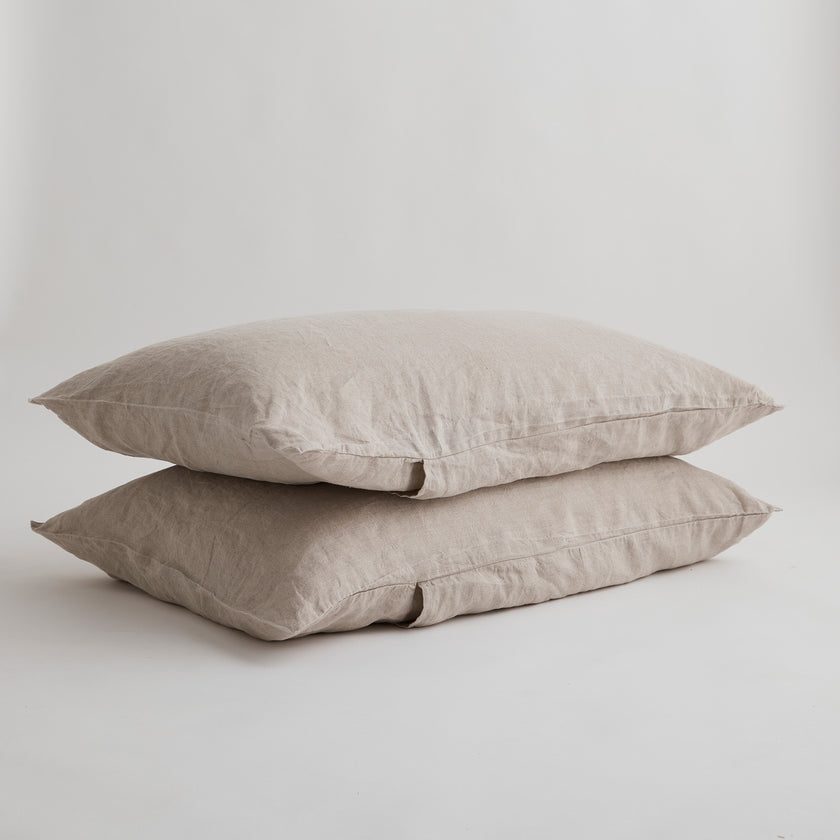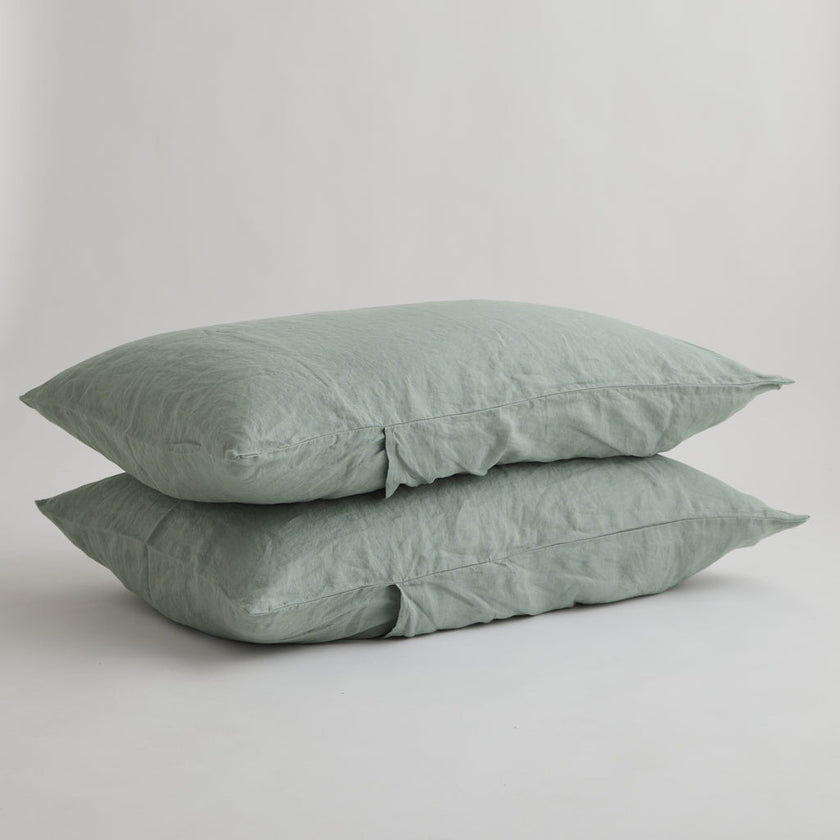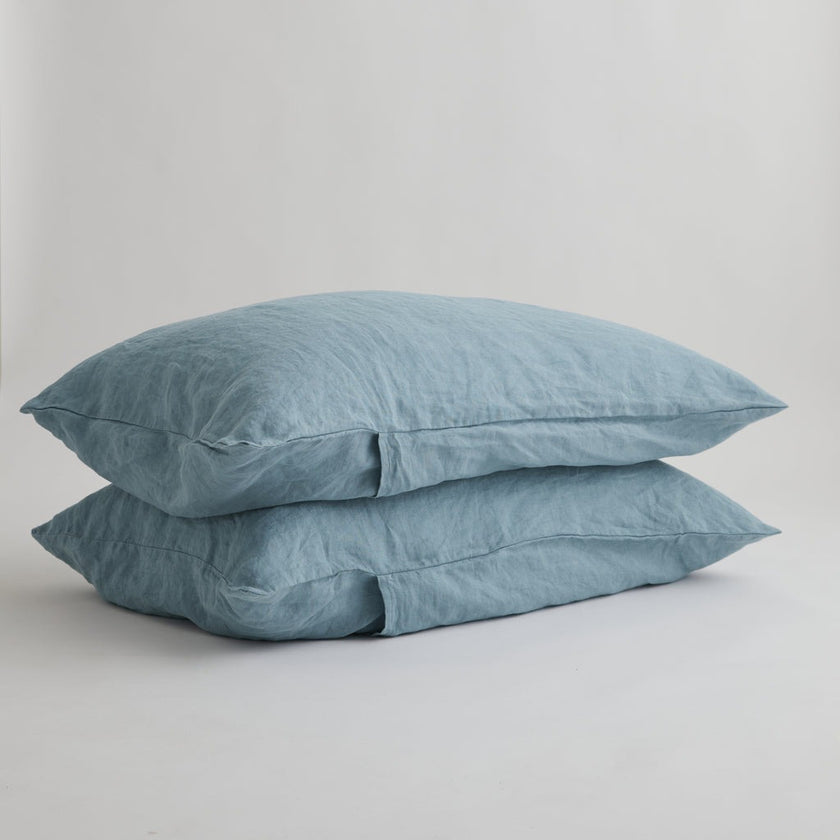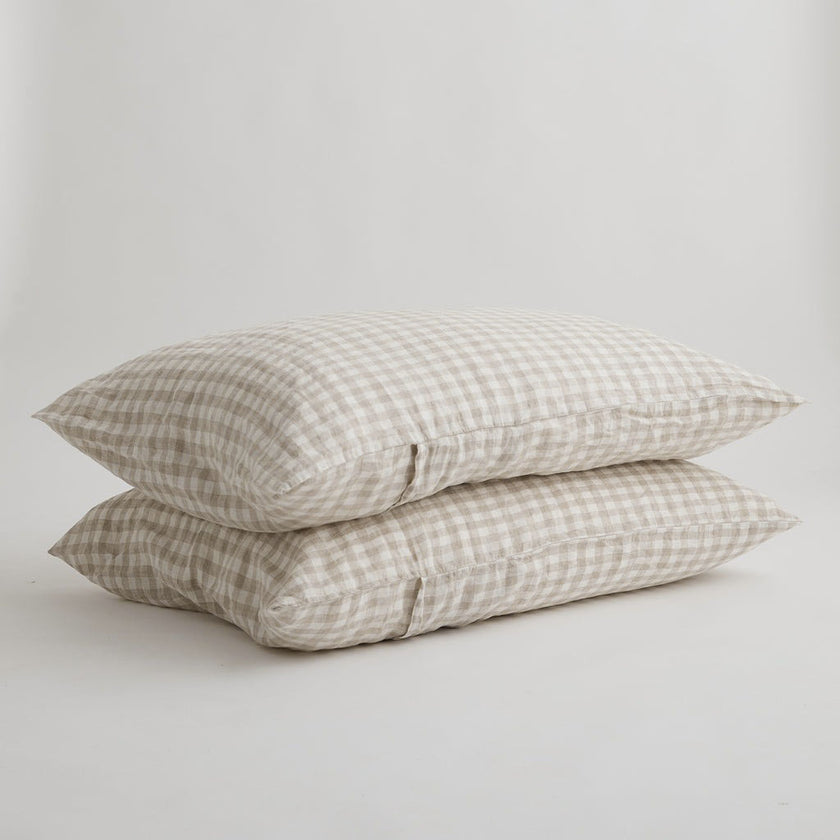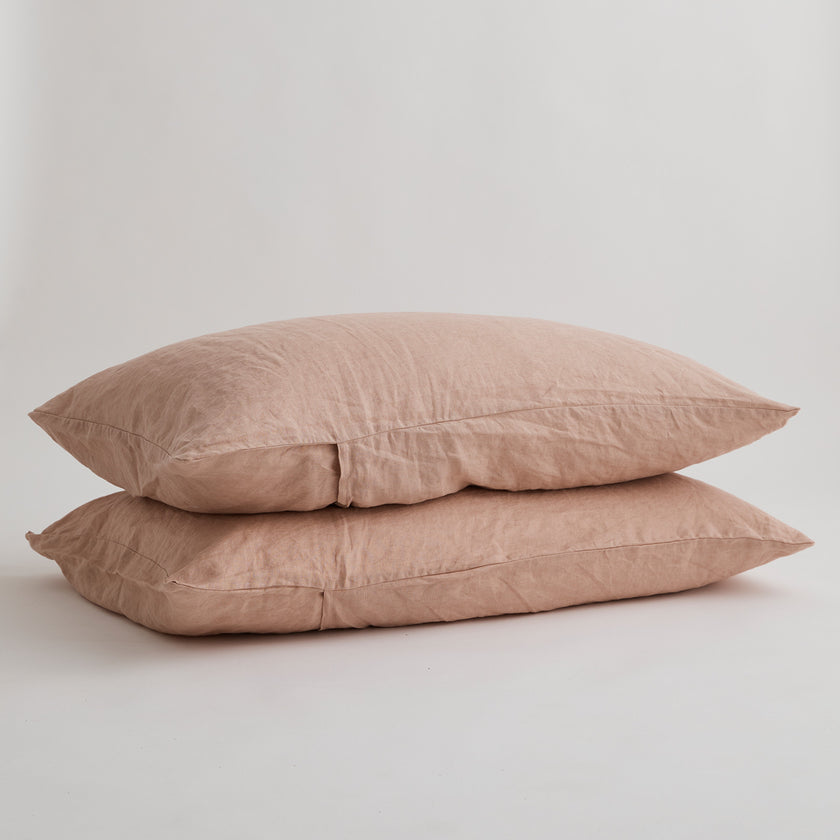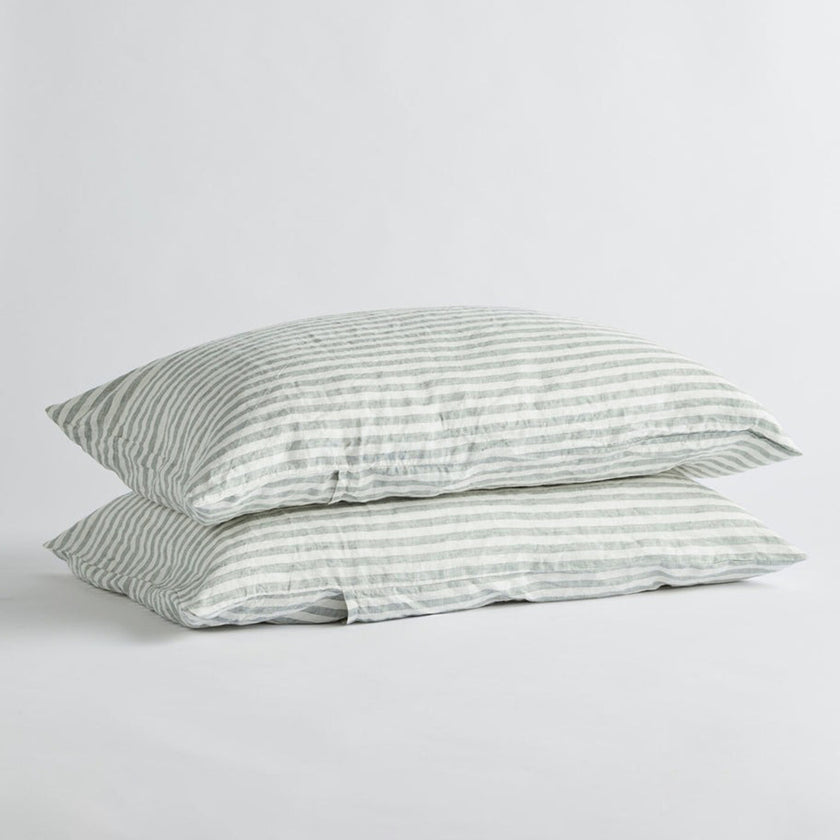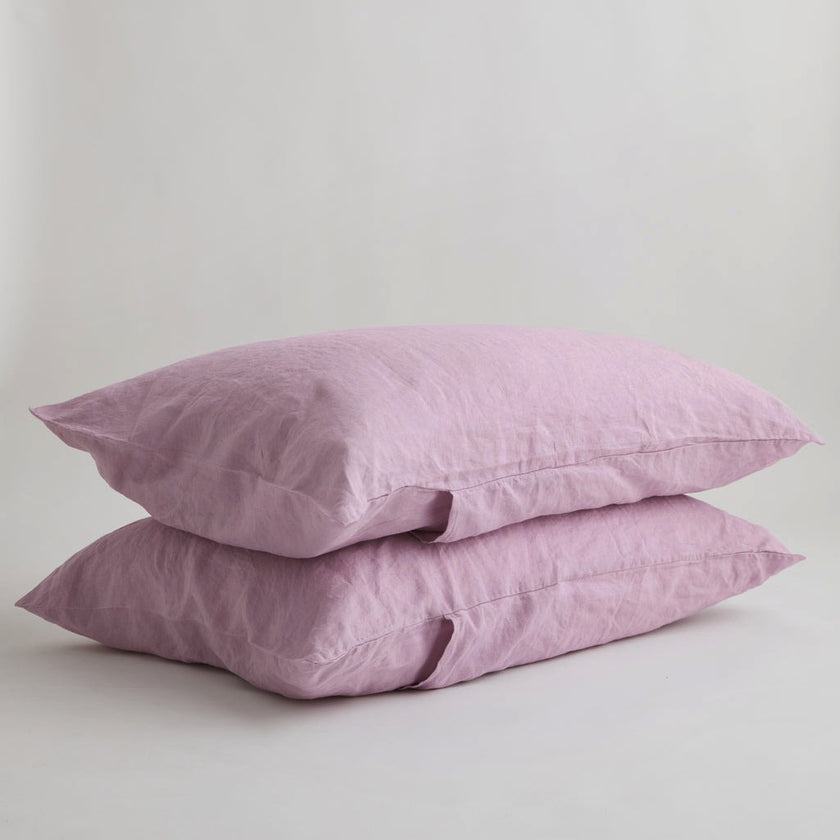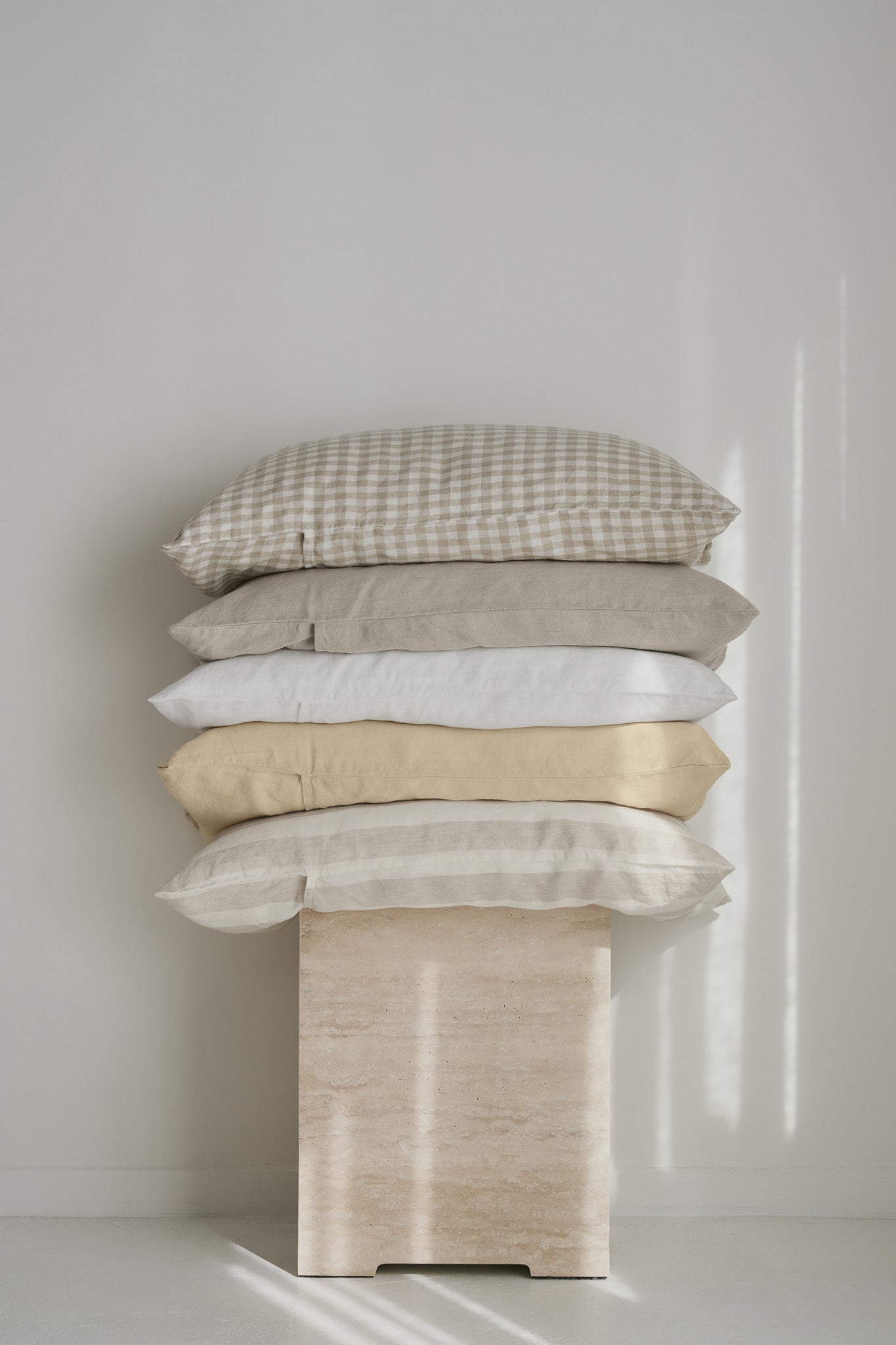
Are Linen Pillowcases Good for Your Skin?
Posted: 17 October 2025
Your pillowcase might be dirtier than your toilet seat.
In just a week, an unwashed pillowcase can collect millions of bacteria, all thanks to sweat (especially in the middle of summer), oils, dead skin cells, and leftover makeup. Some of these bacteria can even be the type that irritates your skin or causes breakouts.
But don't worry. Not all pillowcases are created equal, so we're here to tell you why linen pillowcases might be the bedding break your skin needs.
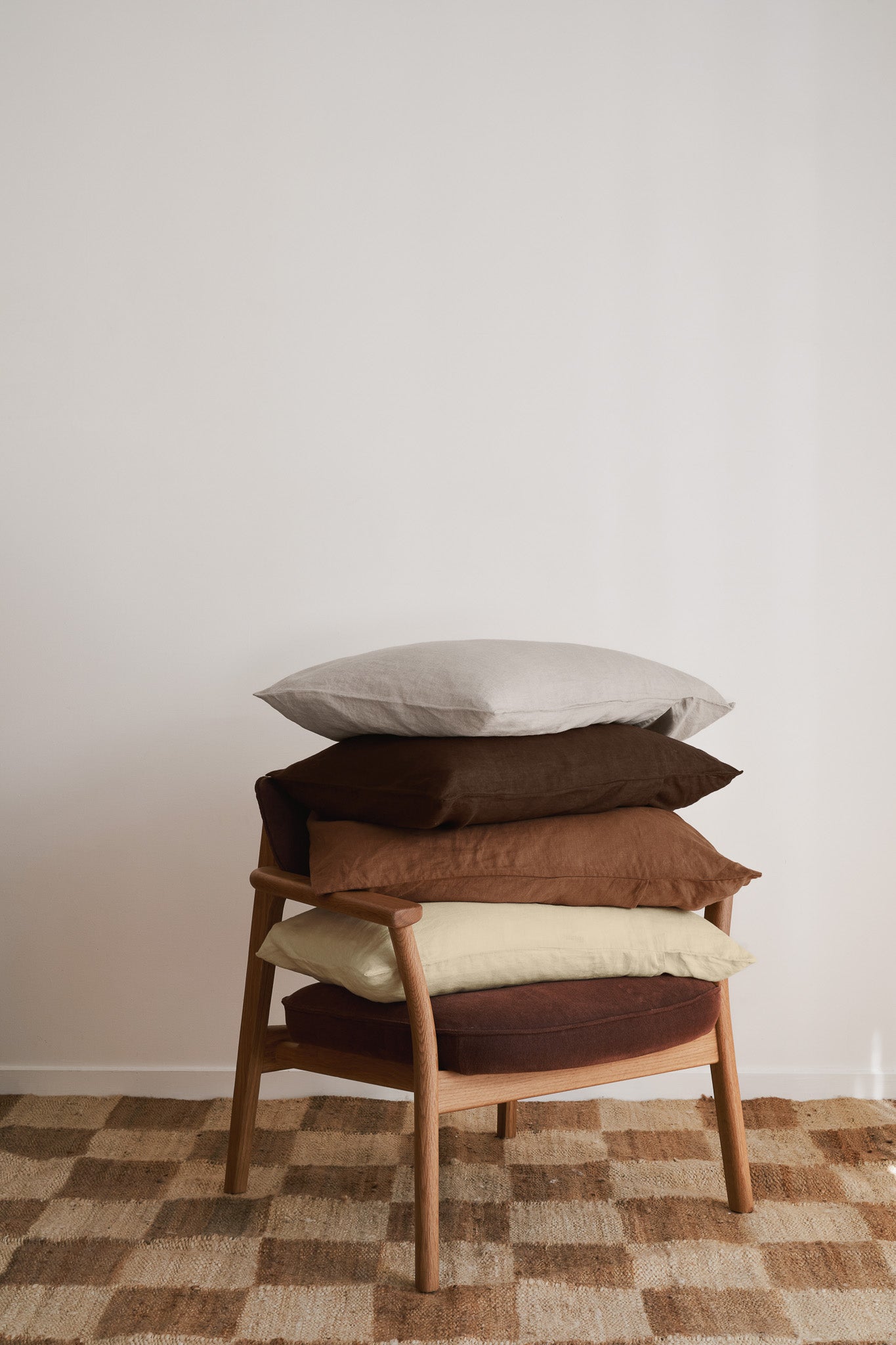
Linen is gentle on sensitive skin
If you sleep on your side or stomach, your face spends hours rubbing against your pillow. Linen’s natural texture softens beautifully with every wash, creating a gentle surface that won’t tug or irritate.
That means fewer sleep creases, calmer skin, and a softer landing for your delicate features.
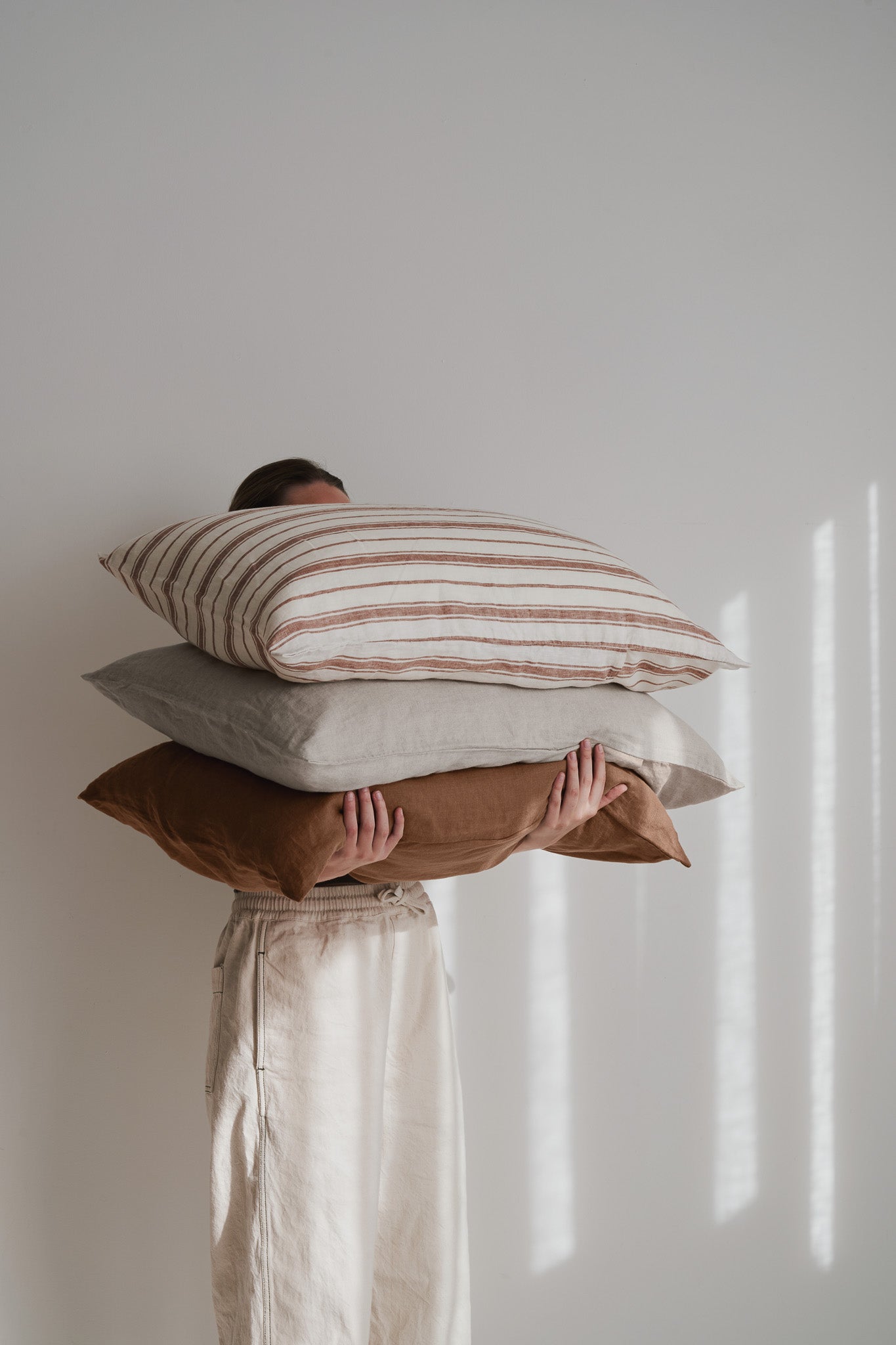
It's naturally hypoallergenic
Warm, damp fabrics are a playground for dust mites, mould, and bacteria. Linen, on the other hand, dries quickly and naturally fights bacteria, keeping your pillowcase fresher between washes.
If your skin is sensitive or you deal with allergies, linen can help reduce irritation simply by being a cleaner surface for your face.
Helps skin maintain balance
Unlike fabrics that aggressively soak up moisture, linen lets your skin breathe while holding onto its natural oils. You wake up with a complexion that feels balanced instead of one that dry, stripped, or tight.
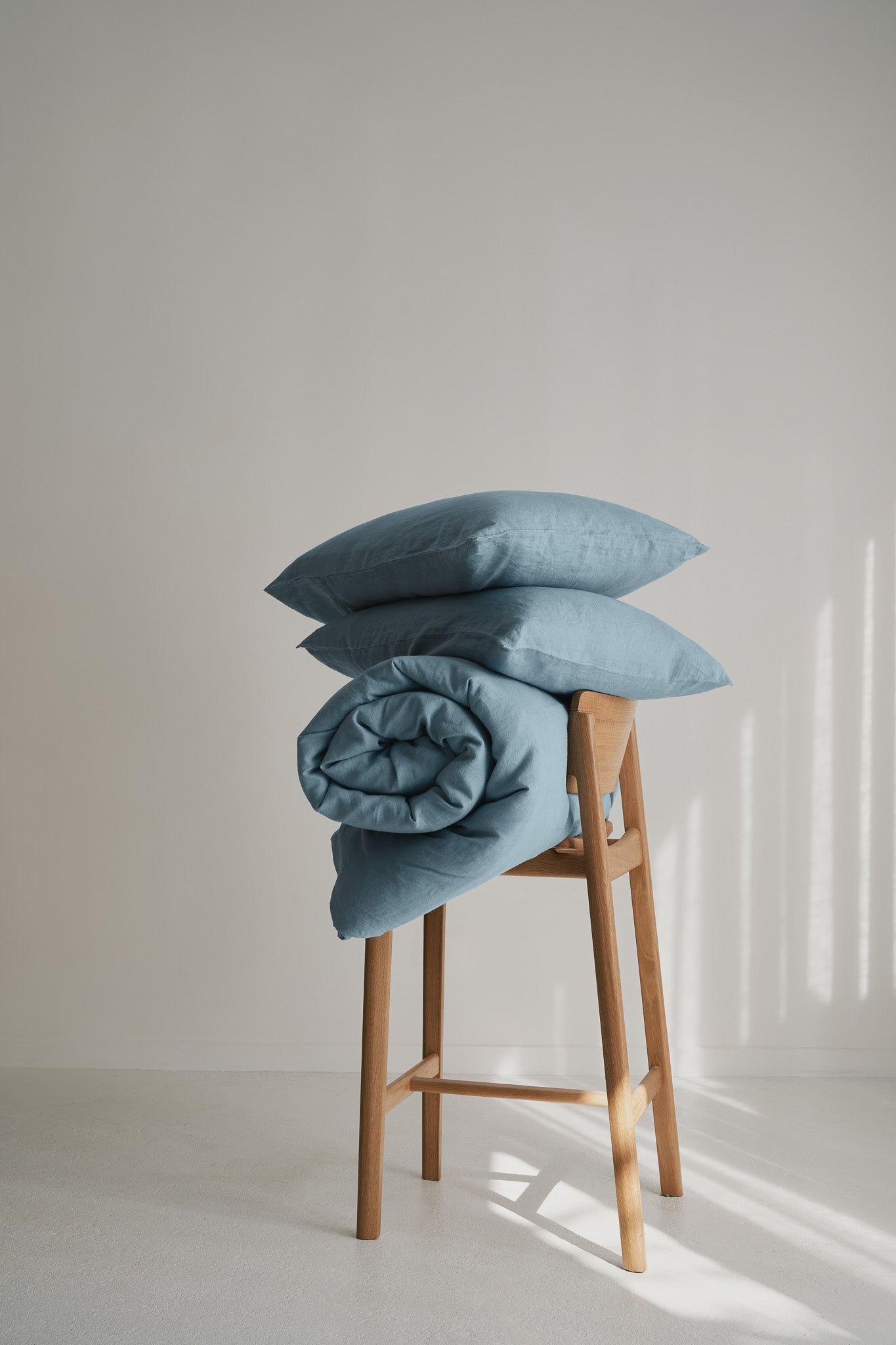
Built to last (and look beautiful)
Another bonus? Linen gets softer with age. It doesn’t break down or go rough, it actually improves with each wash. That means your skin gets a consistently soft, comfy surface every night, and you’re not replacing pillowcases every few months.
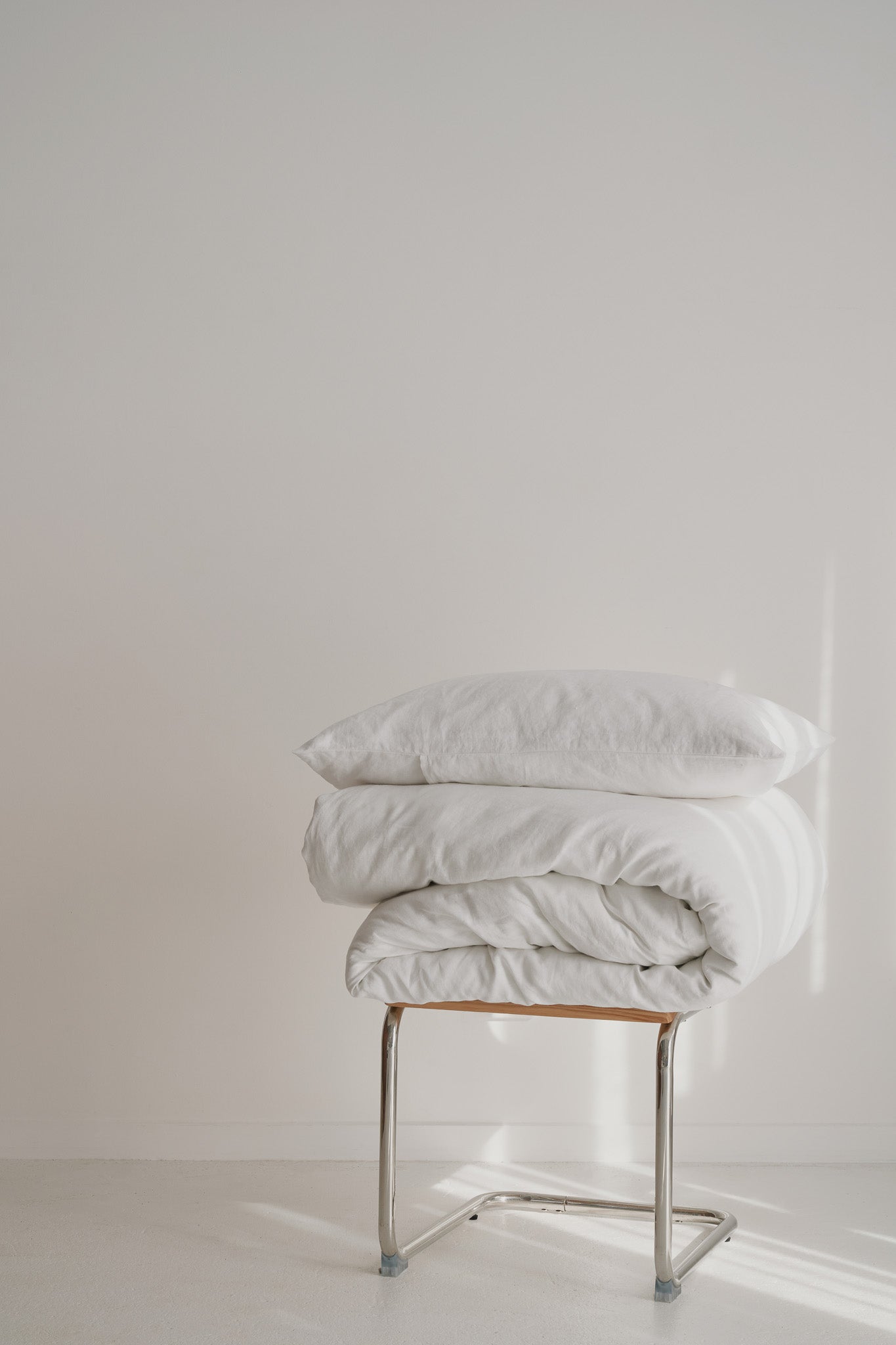
So, are linen pillowcases worth it?
Absolutely. They won’t replace your serums or cleansers, but they’re a simple, natural upgrade that works with your routine.
- Breathable- - Hypoallergenic
- - Soft on the skin




